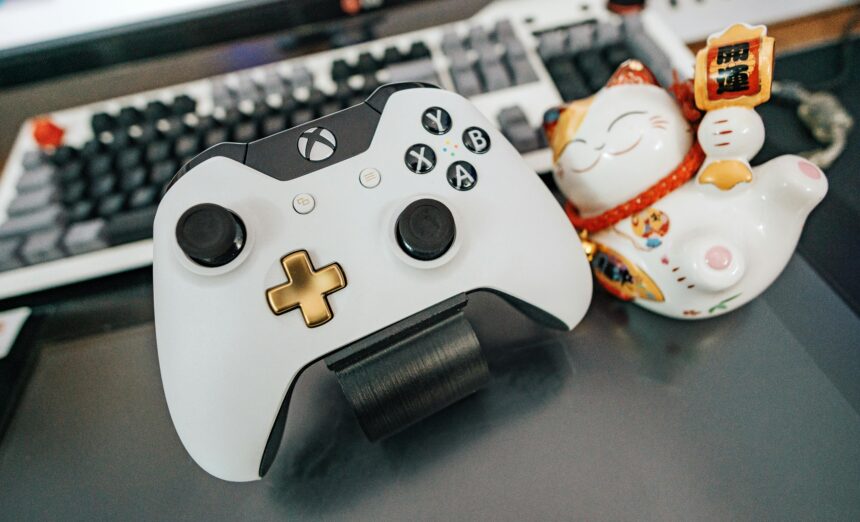In the ever-evolving landscape of video gaming, the debate between PC gaming and console gaming continues to thrive. Each platform has its own dedicated fanbase, and while both have their unique strengths and appeal, there are compelling reasons why many gamers argue that PC gaming is superior to console gaming. This blog post delves into the various aspects that set PC gaming apart, examining the flexibility, performance, cost-efficiency, and broader ecosystem that make it the preferred choice for many enthusiasts.
Superior Performance and Customization
Hardware Power: One of the primary advantages of PC gaming is the superior performance potential. Unlike consoles, which are limited to the hardware specifications chosen by the manufacturer, PCs can be equipped with the latest and most powerful components available. This includes high-end CPUs, GPUs, RAM, and storage options that can far exceed the capabilities of even the most advanced consoles.
Example: The Nvidia GeForce RTX 4090, a top-tier graphics card, offers unparalleled graphical performance that consoles simply cannot match. With support for real-time ray tracing and AI-driven enhancements, games look and run better on a high-end PC.
Customization: PC gaming allows for extensive customization. Gamers can build their own rigs, choosing each component to suit their specific needs and preferences. This level of customization extends beyond hardware to software, with users able to tweak game settings, install mods, and optimize their system for maximum performance.
Example: PC gamers can overclock their CPUs and GPUs to squeeze extra performance out of their hardware. Custom cooling solutions, such as liquid cooling systems, can also be implemented to maintain optimal temperatures and performance.
Versatility and Game Library
Game Availability: PCs have access to an extensive and diverse library of games. From triple-A titles to indie gems, the range of available games is unparalleled. Additionally, many games that are initially released on consoles eventually make their way to PC, often with enhanced features and better performance.
Example: Titles like “The Witcher 3: Wild Hunt” and “Red Dead Redemption 2” saw improved graphical fidelity and additional content when ported to PC, providing an enhanced experience compared to their console counterparts.
Backward Compatibility: PCs offer unparalleled backward compatibility, allowing gamers to play titles from any era without needing multiple systems. Emulators further extend this capability, enabling the play of games from virtually any console generation.
Example: A PC gamer can easily run classics from the ’90s, such as “Doom” or “Baldur’s Gate,” alongside modern hits like “Cyberpunk 2077,” all on the same machine.
Modding and User-Generated Content
Modding Community: One of the standout features of PC gaming is the thriving modding community. Mods, created by passionate gamers and developers, can dramatically enhance the gaming experience. They can fix bugs, improve graphics, add new content, and even create entirely new gameplay experiences.
Example: “The Elder Scrolls V: Skyrim” has a vibrant modding community that has produced thousands of mods. From graphical overhauls to new quests and characters, mods have kept the game fresh and relevant for years.
User-Generated Content: Platforms like Steam Workshop make it easy for gamers to access and share user-generated content. This fosters a community-driven approach to game improvement and longevity, ensuring that games continue to evolve long after their initial release.
Example: “Cities: Skylines” has a dedicated community that creates mods and assets, adding new buildings, maps, and gameplay mechanics that keep the game engaging and innovative.
Control and Precision
Input Options: PC gaming offers a variety of input options, allowing gamers to choose the control method that best suits their play style. While consoles are typically limited to gamepads, PCs support keyboards, mice, gamepads, joysticks, and even VR controllers.
Example: First-person shooters like “Counter-Strike: Global Offensive” and “Overwatch” benefit greatly from the precision of a mouse and keyboard, providing an edge in accuracy and reaction times that is hard to achieve with a gamepad.
Customization and Accessibility: PC gamers can customize their control schemes to a high degree, tailoring keybindings and mouse sensitivity to their preferences. This level of customization also extends to accessibility options, making gaming more inclusive for those with disabilities.
Example: Programs like ReWASD allow for extensive customization of gamepad controls, while software like AutoHotkey can be used to create complex macros and scripts to assist with in-game actions.
Cost Efficiency and Upgradability
Initial Investment vs. Long-Term Savings: While the initial cost of building a high-end gaming PC can be significant, the long-term savings often outweigh the initial expense. PC gamers benefit from lower game prices, frequent sales, and the ability to upgrade components incrementally.
Example: Steam sales offer significant discounts on a wide range of games, allowing PC gamers to build a substantial library for a fraction of the cost compared to buying games at full price on consoles.
Upgradability: The modular nature of PCs means that individual components can be upgraded as needed. Instead of purchasing an entirely new console every few years, PC gamers can simply upgrade their GPU, add more RAM, or install a faster SSD to keep their system up to date.
Example: A PC built with a mid-range GPU today can be upgraded with a high-end GPU in a few years, extending the system’s lifespan and maintaining performance with newer games.
Streaming and Content Creation
Streaming Capabilities: PCs are the preferred platform for streaming games, thanks to their superior performance and the availability of powerful streaming software. Programs like OBS (Open Broadcaster Software) and XSplit provide advanced features for streaming and recording gameplay.
Example: Professional streamers on platforms like Twitch and YouTube often use high-end PCs to ensure smooth, high-quality streams that attract and retain viewers.
Content Creation: Beyond gaming, PCs are also powerful tools for content creation. From video editing and graphic design to music production and 3D modeling, a gaming PC can double as a workstation for a variety of creative pursuits.
Example: Software like Adobe Premiere Pro and Blender can take advantage of a gaming PC’s powerful hardware to render videos and 3D models efficiently, making it an invaluable tool for content creators.
Broader Ecosystem and Flexibility
Software and Utilities: PCs offer a vast array of software and utilities that enhance the gaming experience. From voice chat applications like Discord to performance monitoring tools like MSI Afterburner, the ecosystem surrounding PC gaming is robust and versatile.
Example: Discord provides gamers with a powerful communication tool, offering voice, video, and text chat functionalities that integrate seamlessly with games.
Customization of the Gaming Environment: PCs allow for extensive customization of the gaming environment. Gamers can choose from a wide range of monitors, including ultra-wide and high-refresh-rate displays, to create their ideal setup.
Example: A dual-monitor setup can enhance multitasking, allowing gamers to play on one screen while keeping an eye on chat, guides, or social media on the other.
Flexibility in Game Stores: Unlike consoles, which are often tied to proprietary stores, PCs provide access to multiple game distribution platforms. Steam, Epic Games Store, GOG, and more offer a variety of choices, each with its own unique features and sales.
Example: GOG offers DRM-free games, allowing gamers to own their games outright without worrying about online authentication or restrictions.
Conclusion
While console gaming has its merits, such as ease of use, exclusivity of certain titles, and a more uniform gaming experience, PC gaming offers a level of performance, customization, versatility, and long-term value that consoles cannot match. The ability to build and upgrade your own system, access a broader and more diverse game library, engage with a thriving modding community, and utilize a variety of input and customization options make PC gaming the superior choice for many enthusiasts. As technology continues to advance, the gap between PC and console gaming is likely to widen, further solidifying the PC’s position as the premier platform for serious gamers.








